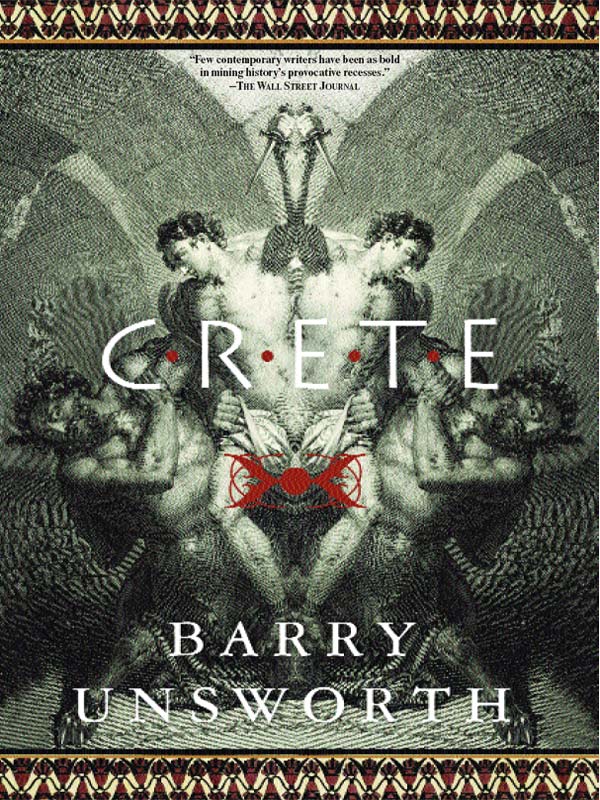
Crete
National Geographic & Yellow Border Design
کتاب های مرتبط
- اطلاعات
- نقد و بررسی
- دیدگاه کاربران
نقد و بررسی

January 19, 2004
Booker Prize–winning novelist Unsworth (Sacred Hunger
, etc.) travels with his wife to the ancient island of Crete, where, according to the Greeks, "everything began." The island's history is gruesome due to centuries of occupation by Venetian, German and Turkish conquerors, so Crete can "sometimes seem a patchwork of stories, from primal myth to heroic legend, to the embroideries of local gossip." Just as the "Cretans love stories," so does Unsworth, and on visiting the wonders of the island—the "holy cavern of Psychro" (the supposed birthplace of Zeus), the gorges of Samaria and Therisso, the Lasithi Plateau—he infuses his narrative with historical facts, mythic lore and a deep appreciation for nature. His keen understanding of history and legend also illuminates his visits to the island's churches and monasteries, and particularly the ruined palace at Knossos, where the hero Theseus was said to have defeated the "monstrous Minotaur." A reverence for Crete's flora and fauna pervades Unsworth's exacting prose ("the scrub glows with a soft burnish, flame-colored, forming a landscape almost too beautiful to be quite believed in"), and he often couples these descriptions with sadness over Crete's invasive, oppressive tourism industry. The people of Crete, Unsworth notes more than once, are "of great spirit and generous hospitality implacable vindictiveness," often still upholding "blood feuds" that originated centuries ago. Despite Unsworth's bouts of melancholy and occasional frustrations, the author's thoughtful journey eventually finds peace and comfort in "the vitality and warmth of the people and the unfailing charm of the landscape." (Feb.)
Forecast:
With the 2004 summer Olympics in Athens, Greece will be the focus of significant attention, which Unsworth's book could benefit from.

February 1, 2004
National Geographic's "Directions" series features travel narratives by some of the finest contemporary writers, and Unsworth's account of Crete is another worthy addition. Author of the Booker Prize-winning Sacred Hunger, Unsworth is strongly attuned to both Cretan mythology and its 8000-year-long history. His musings zigzag from speculations about Sir Arthur Evans and the discovery of the Knossos, to the occupation of Crete by the Venetians and the Ottoman Turks. The narrative is laced with an anecdote here, a legend there about the cave where Zeus was born, the cave sacred to the goddess Artemis, or the one inhabited by the Cyclops Polephemus, and recounts a trek through the famous gorge of Samaria. Unsworth laments the growth of tourism and the culture for "megaluxes" (vast hotels), comparing the trappings of tourism to the modern-day Knossos labyrinth. This literate pastiche of history, mythology, and impressionistic writing, full of descriptions of monasteries, frescoes, and goats clambering on hillsides, is sure to delight the S traveler and provide background information for the tourist. Recommended for all libraries.-Ravi Shenoy, Naperville P.L., IL
Copyright 2004 Library Journal, LLC Used with permission.

February 1, 2004
Novelist Unsworth's report of his and his wife Aira's recent sojourn on Crete is nothing if not counsel to slow down and smell the flowers and, more to the point on this island, see the light, which, brilliant and caressing, highlights every detail yet gathers one into the totality of the place. Ironically, the brevity mandated by the National Geographic Directions series imparts a rushed quality to the book. He and Aira seem always to be frantically driving until they really must walk, either because the way becomes vehicularly impassable or too lovely not to saunter along. They visit great vistas and imposing natural features (on Crete, mainly its dramatic gorges, the last refuges for some unique island species); caves in which gods were born, saints later resided, and religious and patriotic martyrs suffered; and the remains of the first great European civilization, that of the vanished people archaeologist Arthur Evans, their discoverer, dubbed Minoans. About all of this Unsworth is informative though pensive, for he sees everywhere the depredations of tourism.(Reprinted with permission of Booklist, copyright 2004, American Library Association.)

























دیدگاه کاربران